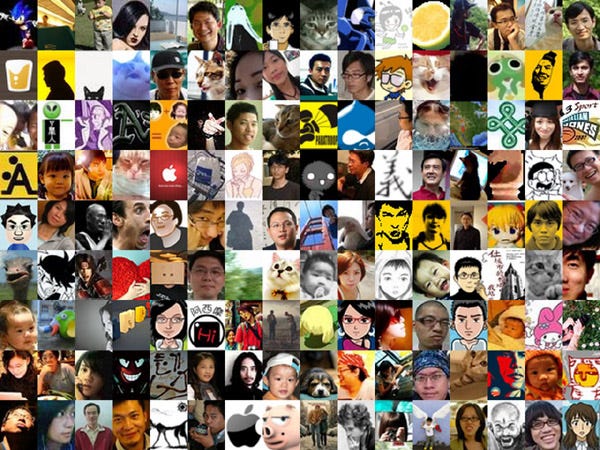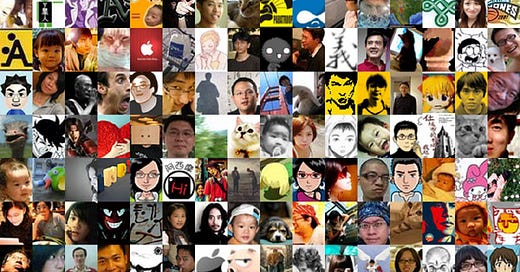We live in a golden age of social media stupidity (and why that's great news for journalists)

Earlier this year I was at a journalism conference in Perugia and on one of the panels was a chap from the Huffington Post. He described how during the 2008 Presidential campaign they'd had a massive scoop when one of their contributors caught a candidate gaffe on video, it was uploaded and within hours it was leading most international news sites and the talk of the day on Twitter, Facebook and more.
Our panel discussed the implications of this on the media, and I said we're living in a golden age of social media stupidity. Why? Because at the moment you can find copious amounts of information on people, their activities, and much more - but you can also find it very quickly.
I was reminded of this by Alison Gow's excellent post on How to (Not) kill Journalism and how the web represents such an opportunity, particularly being able to crowdsource direct with your followers.
Sadly, I was also reminded of it by the university where I did my degree as X Factor reject Frankie Cocozza came to perform at the student night club.
Lots of excited youngsters queued to see Mr Cocozza and one young lady decided to ask for her ass to be signed by the man himself. She found herself on the Daily Mail and quickly saw tweets and Facebook messages about the offending incident, and a Facebook photo album, which was completely public, became a hunting ground for people to leave downright abusive comments about some of the people having their photo taken with Cocozza (Interestingly, the photo Daniel Bentley tweeted, which drew nearly 400 comments about a certain girl, has now been removed.
The comments were, as Dave Lee has previously pointed out in his post about YouTube comments, rude, abusive and wouldn't be tolerated anywhere else (see terms and conditions etc). So why do we unleash and let forth a torrent of "what we really think" online?
To me it is all about education. There's not many who can say they've grown up with social media, for my generation (growing up around the turn of the century) it was MSN, AOL, ICQ and chatrooms when we were teens - oh and email. But these tended to be 1-2-1 chats, usually not able for use afterwards unless someone saved the chat and printed it out.
For the generation after it was MySpace, Faceparty and Bebo. But these weren't discussed in school, there was no how to, we were being trained in Excel, Word and Access. The curriculum was Microsoft and how to "do things" on computers.
Journalists are nearly always early adopters, we worked out how to do things with mobile phones earlier than most, same with the internet and computers. We might not be the best, but we know how to make technology do what we want it to do in very creative ways. And it is the same with social media, around 2009 there was always the complaint that the only person you'll find on Twitter is a journalist.
But as the population have mainly taught themselves how to use social media, and used it as something akin to a hobby, they perhaps don't think too carefully about the real-life implications.
The amount of personal information available on Facebook is stunning, and yet these people might be X-Directory because they don't want their home phone number being found. A quick search can reveal nearly the exact location you live in, who all your family are, your phone number, numerous photos of you (which are often dated and located), and very quickly a back story can be found on who you are.
Twitter acts as an archive of what you say. They aren't deleted after a certain time, there are thousands of tweets stretching back, with their conversations available so context can be placed.
Journalists have been quick to the party, the number of "and he said on Twitter" stories has been growing. Especially as more and more people with authority or celeb status take to the service to use it as a communication channel. If it happens on Twitter, it will be on the mainstream media websites within hours and in the papers the next morning, and the magazines within a couple of days. The media amplifies the Facebook and Twitter spats, announcements and stupidity to whole new levels.
Before if you did something stupid, your friends knew it and would (most of the time) never let you forget. Now if you're filmed naked and running into a window on holiday you are that bloke off the YouTube clip, forever and on your CV.
[youtube http://www.youtube.com/watch?v=brdLMV01lmc&w=600&h=437]
So, why is this so great for journalists? Because it is real. It's moments we just wouldn't get to see otherwise, it's the angry opinions of someone unleashed directly and it's an insight into what people really think and do. It's lifting the lid off life itself, and that's what shifts page views and sells papers.
Until the right education on social media privacy is given at an early age to the masses, this boom time will continue. I guess it will be anything you tweet may be given as evidence, and as we've seen with the Facebook riot inciters - it rightly can be.
Image credit to charlessc



